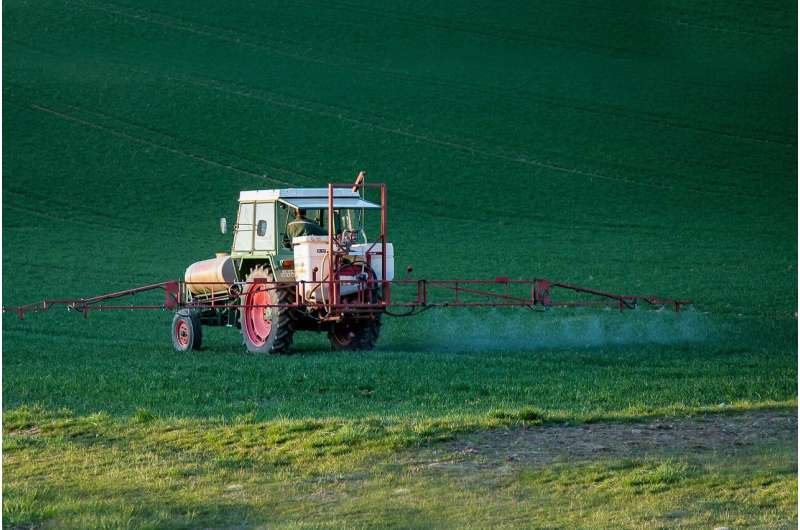This article has been reviewed according to Science X's editorial process and policies. Editors have highlighted the following attributes while ensuring the content's credibility:
fact-checked
reputable news agency
proofread
NGOs accuse Bayer of hiding glyphosate risk data

An NGO grouping said Wednesday it had filed claims in an Austrian court alleging that chemicals firm Bayer withheld data showing health risks from exposure to its herbicide glyphosate, which the EU has proposed to keep using for 10 more years.
Environmental activists have long said there is scientific evidence that glyphosate may cause cancer, poison aquatic life and be fatal to key pollinators like bees, which Bayer and some experts dispute.
Vienna prosecutors opened an inquiry in 2019 after NGOs filed suits alleging the herbicide's dangers.
As part of that inquiry, the Global 2000 association said it had given prosecutors new documents purportedly showing that Bayer omitted research results indicating risks to the nervous system, especially for pregnant women and children.
"In its re-authorization request, Bayer wrongly excluded unfavorable data or presented results in a misleading way" in an attempt to deceive authorities and the public, Helmut Burtscher-Schaden, a biochemist with Global 2000, told AFP.
Bayer, which sells the widely used glyphosate under the Roundup brand, denied having "withheld any scientific studies", saying in a statement that it "has always acted in a completely transparent manner".
Yet it has sustained a series of court challenges since buying Monsanto, which owned Roundup, in 2018 and inherited its legal woes.
In 2021, a San Francisco appeals court ordered the company to pay $87 million to a couple who claimed they got non-Hodgkin's lymphoma after using Roundup for years.
The European Commission proposed in September to renew the authorization for glyphosate in the EU for 10 years, after a report from the European Food Safety Authority saw no reason to block it—sparking a backlash from environmental groups.
Glyphosate is classified as a "probable carcinogen" by the International Agency for Research on Cancer at the World Health Organization (WHO).
"We thought it was important for decision-makers to know that the risk evaluations were based on incorrect or incomplete data," Burtscher-Schaden said.
His group joined with the Pesticide Action Network Europe and France-based Generations Futures to lodge the latest filing.
EU member states will meet on October 13 to discuss glyphosate's renewal, which must be approved by a weighted majority of countries.
© 2023 AFP





















